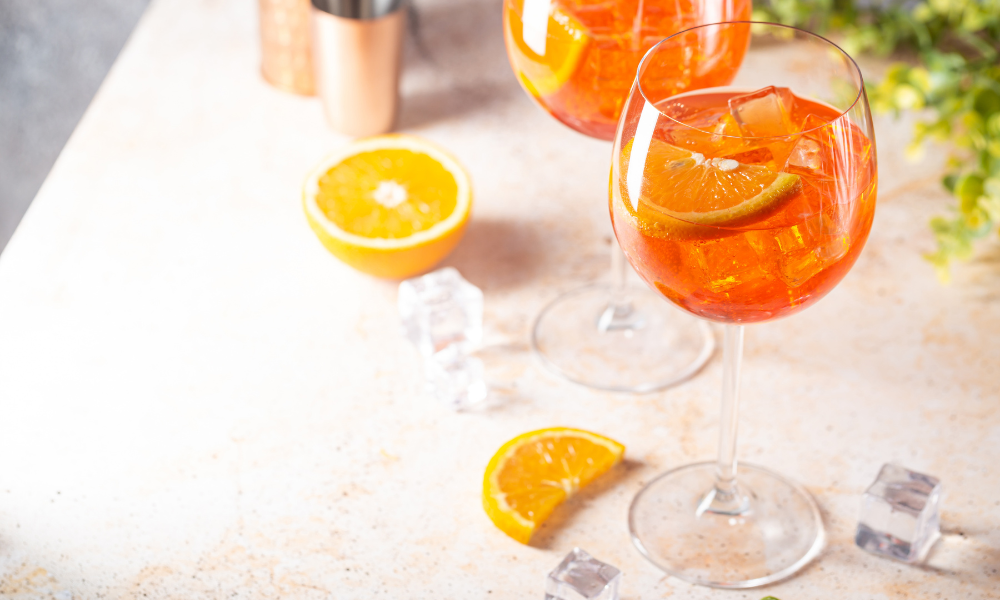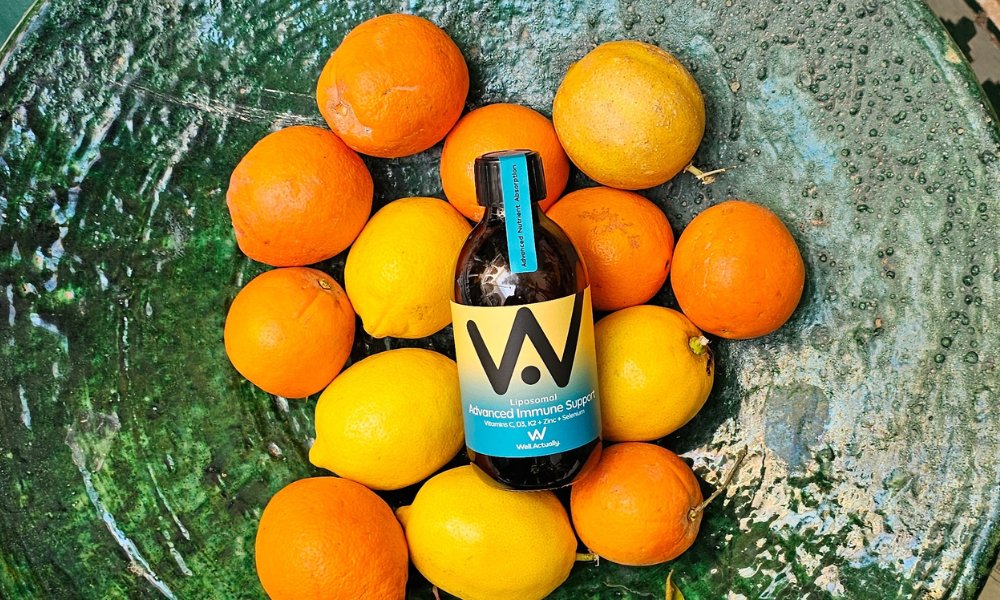Summer is synonymous with golden sunsets, beach picnics, and refreshing drinks. But did you know that as the seasons shift, so do our dietary patterns, alcohol intake, and lifestyle choices? The reason diet food patterns emerge stronger at this time of year is due to temperatures rising, where the body seeks cooling foods which leads us to consume more raw, water-rich foods. Summer's dietary patterns, influenced by nature and culture, provide a chance to rejuvenate our bodies with nutrient-dense foods. Recognizing and understanding these patterns can help us make the most of this season's offerings while maintaining optimal health and weight. Let’s dive deep into the summer season and see how it shapes our choices and ultimately, our health.
1. Dietary Patterns: Seasonal Foods and Fresh Produce
Ah, summer! A season that paints our plates with a kaleidoscope of fruits and vegetable. Have you found yourself recently reaching for a juicy watermelon wedge, munching on celery sticks, or savouring the sweet tang of fresh berries and crisp sweet peppers? You're not alone. With the sun shining high, we're naturally drawn to refreshing, light bites like zesty salads and chilled smoothies. Your body will also appreciate it. Fresh fruit is a cooling snack that rapidly satisfies thirst
Fruits and Their Vibrant Array
Diet Shift: I am not sure about you, but I find myself irresistibly drawn to the seasonal ripe-fruits, which are not just a treat for my palate but also brimming with nutrients that bring a slew of health perks. The richness of vitamins, minerals, and antioxidants in them, helping bolster immunity, fend off oxidative stress, and keep inflammation at bay. And let's not forget how they contribute to radiant skin and boosted collagen production, gifting us that sought-after summer shimmer and to help you look and feel your best. On top of that, the dietary fibre (1.) from fruits is great for our digestion and keeping blood sugar levels steady.
When it comes to berries, strawberries (2.) in particular, they've become my go-to. Their tantalizing taste paired with their nutritional profile, packed with antioxidants, vitamin C, and manganese, which are good for heart health, skin vitality, and overall metabolism.
I've always held a special place in my heart for mangoes (3.),(4.). Whilst not strictly seasonal to the UK, every bite offers us a lavish spread of vitamins A, C, and E, all championing my immunity and are great for my skin health.
Let’s not forget cherries. Those deep-red delights come packed with vitamins A and C and are abundant in vital minerals like iron and calcium and potassium. What's more, tryptophan (5.), serotonin, and melatonin sources within cherries could be just what you need to help induce a more restful night’s sleep. Another fruit which is effective for sleep is that of Kiwi’s, which are rich in serotonin and antioxidants. A couple of Kiwi’s (22.) one hour before bedtime has been shown to improve sleep.
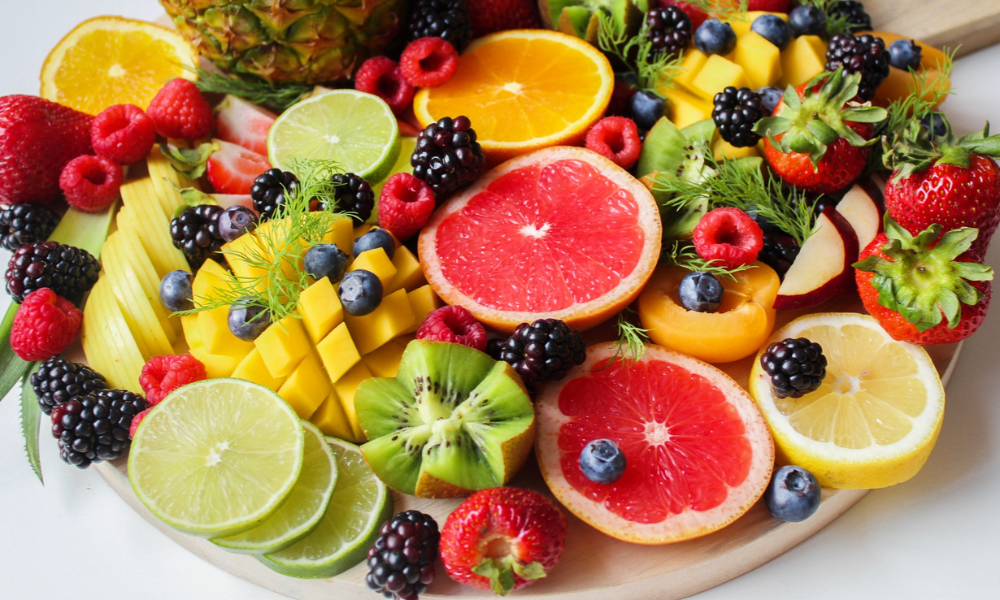
Mindful Diet Tips: As wonderful as our summer picks are, there's a fine line between savouring and overindulging. That fresh fruit salad which is low in calories? Tempting as it might be to drizzle it with creamy toppings or a scoop of ice cream, those extras can quickly pile on those sneaky calories and give your blood sugar an unexpected spike.
While fruits are packed with nutrients, and possess many positive health benefits, overconsuming them may provide a nasty surprise. Gobbling down too many might mean overloading on natural sugars. Cherries which are rich in sorbitol and fibre can, if consumed in excess, lead to an upset tummy. And don’t get me started on unwashed fruits. Be mindful that some fruits may still contain pesticides where excessive consumption could lead to a chemical imbalance, and so I always advise you to wash the fruit.
Summer Vegetable Revolution
Diet Shift: Summer has a way of revamping my plate, draping it in a medley of leafy greens, crunchy cucumbers, bell peppers, and crisp celery. These aren't just a feast for the eyes, but they're nutrient-packed superstars. For instance, when I bite into a spinach leaf (6.), I am fueling my body with iron, calcium, and magnesium and Vitamin K, ensuring my bones stay strong.
Here's a quirky fact I recently discovered: even though I've always counted cucumbers (7.) as veggies, they're actually fruits! Who knew? With their wealth of vitamins like A, K and C and together with hydration regulation and maintaining blood pressure and sugar levels, they're my go-to for keeping my blood in tiptop shape. And that fibrous skin? It's been great for my digestion.
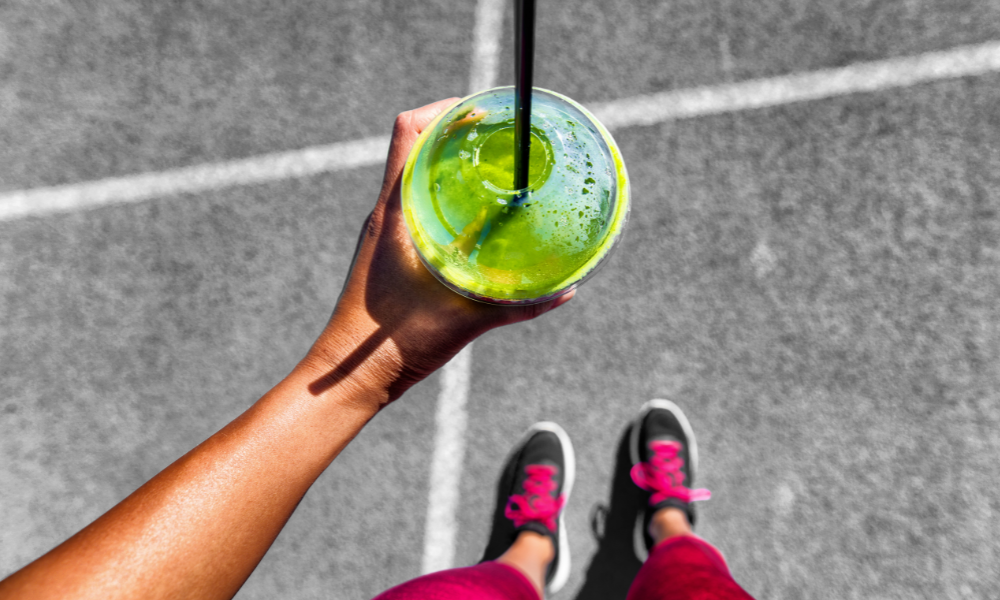
Now, when those summer days feel endless, and I'm in need of an energy lift (especially when I've got my workout hat on), I turn to beets (8.). Those vibrant roots are loaded with nitrates, perfect for giving my blood flow and energy levels a nice boost. Oh, and speaking of energy, I can't help but toss some avocados (9.) into my salad. Sure, they're technically fruits (surprise, surprise!), but they're brimming with healthy fats, fibre, and B-vitamins, which are just the ticket for revving up my metabolism. Cheers to summer and all the delicious and energizing foods it brings my way!
Mindful Diet Tips: Summer is the perfect time to let your culinary creativity soar. Toss these greens in a salad, blend them in a refreshing smoothie, or even give them a light grill to help retain their nutrients. As while boiling (10.) might be a go-to method for some, remember that prolonged boiling can lead to a significant loss of vitamins and minerals. Water-soluble vitamins, like vitamin C and some B vitamins, are particularly susceptible to degradation from prolonged heat. The more vibrant your plate, the broader the spectrum of nutrients you consume. So, the next time you are grocery shopping, be adventurous! Add a new vegetable or two to your cart. It's a delightful way to keep your meals exciting, and your body will surely thank you for the nutrient boost.
Light Protein Sources Take the Lead
Diet Shift: When summer's warmth bathes everything in golden hues, the heavy dishes of winter retreat, making way for lighter, more refreshing picks. There's something about the hot months that leans us into choosing lighter protein sources. We want to enjoy every sun-soaked moment without feeling weighed down or sluggish, right?
Summer BBQs become the norm, and with seafood in season, I'm spoilt for choice. There's a clear trend towards more lean protein options like fish, chicken, tofu, and even legumes. Every time I dig into a piece of salmon or mackerel (11.), I'm not just treating myself to a flavourful bite, but I'm also fueling up on omega-3 fatty acids. There is plenty of research about their health benefits, one of which is reducing inflammation.
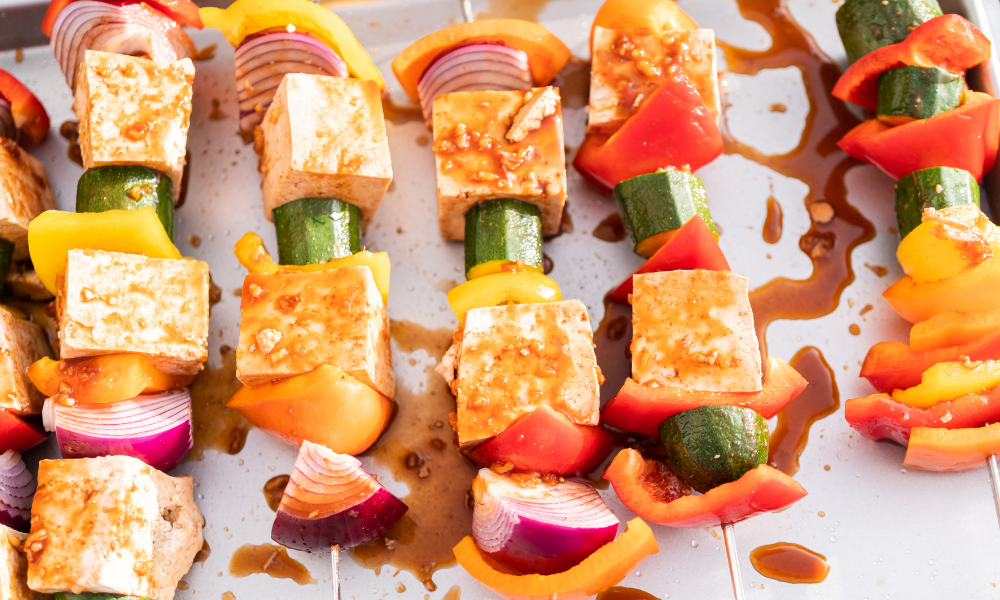
But there's also a practical side to this switch. Digesting those rich, fatty meats we eat more off in colder months can be taxing on our bodies. It demands energy and ends up producing what's called metabolic heat. So, by embracing lighter protein sources, which are often lower in saturated fats and calories, we can sync with our summer weight management goals. Plus, they're kinder to our stomach, quicker to digest, and produce less of that metabolic warmth. The result? One can feel more sprightly, breezy, and ready to make the most of every summer day.
Mindful Diet Tips: While fish and plant-based proteins are healthy, however relying solely on them might lead to deficiencies in nutrients commonly found in red meats, such as iron, zinc, and certain B vitamins, especially Vitamin B12 (12.)
Certain fish, particularly predatory ones like tuna, may contain higher levels of heavy metals, especially mercury (13.). Regular consumption can lead to accumulation and potential health risks (14.) and it is recommended for women who are pregnant to limit their intake.
If significantly moving your diet to plant-based proteins, this can lead to lower calcium (15.) intake if dairy is also excluded, potentially impacting bone health.
One should ensure they are making balanced food choices, making sure there is a variety in one's diet to get the full spectrum of nutrients and benefits. If you re more aligned to eating more vegetable and fruit food types, taking a supplement like Liposomal Vitamin B12 or a calcium supplement, to ensure nutrient levels are maintained for optimum health would be a sensible choice.
2. Alcohol Intake: The Summer Cheers
As the sun casts its golden glow a little longer each day, I bet you, like me, find your weekends dotted with invites for barbecues, sun-kissed beach picnics, and lively patio soirées. There's something electric about summer, wouldn't you agree? It's not just the warmth on our skin but the changes we feel, even in the way we socialise.
Alcohol Shift: With the warm embrace of summer, comes a notable shift in our alcohol consumption habits. Remember those cold nights, wrapped in blankets, sipping on deep red wines and indulgent liqueurs? Well, summer has a different tale to tell. It's when we reach out for those lighter, airier choices: the chilled white wines that dance on our palates, the refreshing splash of rosés, those easy-to-drink light beers, and let's not forget the colourful cocktails that promise a tropical escape in every sip.
But here's something I've noticed, and maybe you've felt it too? The vibrant social scene and that infectious vacation vibe can sometimes mean our glasses are refilled a bit more often. For many alcohol becomes the bridge to relaxed laughter, shared tales, and those unforgettable summer night moments. But, while we toast to the memories, we must also toast to mindful drinking.
Mindful Drinking: When we drink mindfully, our celebrations get a touch more memorable, and our health and waistlines thank us. Curious about the calories (17.) and sugars (18.) lurking in your favourite drink? I've put together a quick summary on the hidden aspects of alcohol consumption for you. Keep in mind, these are average figures. For a clearer picture, I recommend checking the specifics of your go-to beverage!
Dehydration: Alcohol is a diuretic (16.), which means it can play tricks on hydration! It nudges our body to expel more fluids and even messes with essential salts. Add summer's warmth to the mix, and you've got a recipe for quicker intoxication and amplified health challenges.
Hidden Sugars & Calories in Summer Drinks: As the sun beats down, we often find solace in refreshing summer beverages. But do you really know what’s inside that cool glass?
Wine: The Sneaky Sugar Spectrum
Sugar Content:
- Dry wines (both red and white) typically contain 1-3 grammes of sugar per litre. The drier the wine, the lower the sugar.
- Sparkling wines range between 6 to 20 grammes per litre. The driest variants like brut have the least sugar.
- Sweet Rose wines can pack a punch with 35-120 grammes per litre. Opting for a dry Rose is the way to go if you're watching your sugar intake.
Caloric Count: A medium 175ml glass of wine contains roughly 135 calories, almost equivalent to half a small burger!
Spirits, Mixers & Cocktails: The Bitter-Sweet Truth
Sugar Content (per 240 ml) – A General Overview:
- Tonic Water: 20-25 grammes
- Fizzy Drinks (e.g., Coca-Cola, Pepsi): 26-39 grammes
- Ginger Ale: 20-24 grammes
- Soda Water: 0 grammes (unsweetened)
- Juices (e.g., Orange, Cranberry): Around 20-30 grammes
- Syrups (e.g., Grenadine): 5-6 grammes per teaspoon
Tip: For a healthier alternative, opt for freshly squeezed juices without added sugars. Also, slimline tonic varieties reduce or eliminate sugar but may have artificial sweeteners.
Caloric Count: A 25ml shot of most spirits packs around 60 calories. Adding mixers can bump this up to around 100-120 calories per 240ml serving.
Beer: The Lighter Side of Brewing
Sugar Content (per 240 ml): Nearly negligible, with lagers and ales containing around 0-2 grams.
Caloric Count: Lagers and ales range from 100-140 calories per 333ml. Note: Higher alcohol content often equates to more calories.
In Conclusion: No drink is a clear victor when it comes to health. Awareness is key. Consuming alcohol invariably means increasing your sugar and caloric intake. So, sip wisely and savour every moment!
Sleep Disturbances from Alcohol: The Bedtime Deceiver
Ever noticed how alcohol seems to promise restful slumber, only to play tricks on your night? Let's decode the night time mischief alcohol (19.) can cause:
- Dream Thieves - REM Sleep: While alcohol might nudge you into sleep's embrace quickly, it can steal your REM sleep. This phase is essential for dreaming and rejuvenation. With less REM, you could wake feeling as if you've barely rested.
- Bathroom Interruptions: Alcohol wears the hat of a diuretic, which in simpler terms, means it sends you to the restroom often. Each bathroom visit can disrupt your sleep continuity.
- Turning up the Heat: Night Sweats: Alcohol tends to meddle with your body’s internal thermostat. The result? You might find yourself overheating, leading to those uncomfortable night sweats.
- Late-night Restlessness: As the effects of alcohol fade, your body might spring into alertness. This can result in tossing, turning, and fragmented sleep for the night's remainder.
In essence, while a drink may seem like a bedtime ally, it often morphs into a nocturnal nemesis. Choose wisely!

Nutrient Depletion from Alcohol: Be careful not to flush away your vitamins and minerals. When consumed, alcohol actively disrupts the body's absorption (20.) and utilisation of crucial nutrients.
For starters, alcohol interferes with the metabolism of thiamine (vitamin B1), vitamin B12, folic acid, and zinc. Thiamine is essential for energy production and cellular function, vitamin B12 plays a critical role in nerve function, the formation of red blood cells, and DNA synthesis. Folic acid is vital for cell division and the formation of DNA, and when combined with a B12 deficiency, can lead to anaemia. Zinc, on the other hand, is necessary for immune function, protein synthesis, and wound healing. When alcohol hinders the absorption of these nutrients, it puts the body at risk of various health complications.
Tips for a Healthier Summer Drinking Experience
I've come to realize the importance of mindfulness and moderation when spirits and sunshine mix. If our glasses refill a bit too often, we are unknowingly inviting extra calories and sugar onto our plates. Alcohol can play mischief with our body's fat-burning process and play havoc with a good night's sleep. And trust me, those sleepless nights can start a domino effect on our health. So, here are some tips to navigate this sunlit season, putting our health first is the ultimate cocktail, right?
Stay Hydrated: For every alcoholic drink, have a glass of water. This will not only help combat dehydration but also pace your alcohol consumption.
Mind the Mixer: Choose natural mixers like sparkling water, fresh fruit juices, or herbs. Avoid sugary drinks or pre-made cocktail mixers.
Choose Wisely: If wine is your drink of choice, remember that dry white wines typically have less sugar than sweet rosés. For beers, lighter options can have fewer calories. Add Ice, and or some soda water to your white wine or rose, to make the wine lighter.
Limit Consumption: Set a personal limit for yourself and be mindful not to exceed it. Sip slowly and savour.
Eat Before You Drink: Having a meal before drinking can slow the absorption of alcohol, ensuring it doesn't hit you too fast and hard. Avoid salty foods which can enhance the diuretic effect of alcohol and cause you to become dehydrated quicker.
3. Outdoor Activities: Fun in the Sun
From garden barbecues and laid-back picnics in lush parks to the thrill of impromptu field and lawn games, from sinking our toes into warm sand and swimming in the sea to kickstarting that outdoor fitness regimen we always talk about – summer has this incredible way of drawing us into a participating in more exercise activities.

And the best part? Each moment spent under the vast blue sky is a gift to our well-being. You've probably felt the afterglow of a good outdoor activity – that mix of muscles well-exercised, the satisfaction of calories burned, and that sun-kissed vitamin D boost. But the best part is that it's not just our bodies that thank us. Our minds do a little happy dance too (21.). Fresh air, the soothing sight of nature, and our shared laughs create the perfect environment to melt away stress and lift our spirits. So remember it's not just about fun. It's our holistic ticket to health and happiness that we must embrace and make the most of during these warmer months.
Mindful Outdoor Activities: There is no denying that outdoor activities are great for our health however increased physical activity and longer days means we're burning more calories and using up essential nutrients at a faster rate, compelling us to snack more often?
However, here's the catch: The energy and nutrients lost through exercise need replenishing, and not all snacks are created equal. While it's tempting to grab a handful of chips or a sugary treat, such choices will not provide the necessary fuel for recovery and sustaining energy levels.
Summer barbecues and picnics, while delightful, can be a minefield of calorie-dense foods and mean you are continuously over-eating and snacking. It's easy to overeat when faced with a banquet of grilled meats, creamy salads, and delectable desserts. Overindulgence not only counteracts the benefits of our outdoor exertions but can also lead to sluggishness, digestive issues, and unwanted weight gain.
Engage in regular outdoor activities but remain mindful of your energy intake vs. output. It's crucial to pair that activity with mindful eating. Opting for nutrient-rich snacks like fruits, nuts, or lean proteins can aid recovery, boost energy, and ensure we're nourishing our bodies appropriately. Remember, summers about balance — the balance of play, rest, and of course, the right nutrition!
 My Final note on Summer
My Final note on Summer
Summer, with its beautiful energy and fun-filled days, is a season we all cherish. However, it can subtly lead us into a maze of health and nutrition nuances — from the allure of chilled alcoholic beverages to the siren call of outdoor activities. We explored how the sunnier days might prompt us to grab an extra drink, but cautioned against the deceptive hydration and sleep disturbances alcohol brings. On the food front, while summer lures us with picnics and barbecues, overindulging, whether it's on creamy potato salads and an extra serving, can counteract our hard-earned fitness gains. As we burn calories playing beach rounders or hiking scenic trails, the need for mindful munching becomes paramount. In essence, this season is all about striking a balance. Enjoy the bounties of summer but do so with a mindful sip and a conscious bite, ensuring your health and spirit stay as radiant as the sun overhead!
Katarina Cepinova
Nutritional Therapist, Naturopath | Clinical Lecturer, Health Educator & Mentor | Health Advocate, Content Writer & Public speaker
References
1. Dietary fibre in foods: a reviewhttps://www.ncbi.nlm.nih.gov/pmc/articles/PMC3614039/
2. Bioactive Compounds of Strawberry and Blueberry and Their Potential Health Effects Based on Human Intervention Studies: A Brief Overviewhttps://www.ncbi.nlm.nih.gov/pmc/articles/PMC6683271/
3. The contribution of mango fruit (Mangifera indica L.) to human nutrition and health
https://www.sciencedirect.com/science/article/pii/S1878535223003222
4. Sônia Machado Rocha Ribeiro, 2010; Bioactive Compounds in Mango (Mangifera indica L.) - https://www.sciencedirect.com/science/article/pii/B9780123746283000347
5. A jerte valley cherry-based product as a supply of tryptophan
https://pubmed.ncbi.nlm.nih.gov/22553424/
6. Health benefits and nutritional value of spinach
https://www.medicalnewstoday.com/articles/270609
7. Health Beneficial Effects of Cucumber
https://www.researchgate.net/publication/351580539_Health_Beneficial_Effects_of_Cucumber
8. Beetroot as a functional food with huge health benefits:https://www.ncbi.nlm.nih.gov/pmc/articles/PMC8565237/
9. Avocado consumption is associated with better diet quality and nutrient intake, and lower metabolic syndrome risk in US adultshttps://nutritionj.biomedcentral.com/articles/10.1186/1475-2891-12-1
10. Effect of different cooking methods on the content of vitamins and true retention in selected vegetables
https://www.ncbi.nlm.nih.gov/pmc/articles/PMC6049644/
11. Oily Fish and Omega-3s Across the Life Stages: A Focus on Intakes and Future Directionshttps://www.ncbi.nlm.nih.gov/pmc/articles/PMC6861329/
12. How prevalent is vitamin B12 deficiency among vegetarians?
https://pubmed.ncbi.nlm.nih.gov/23356638/
13. Mercury in Fish
https://en.wikipedia.org/wiki/Mercury_in_fish
14. Maternal Fish Consumption, Hair Mercury, and Infant Cognition in a U.S. Cohort
https://www.ncbi.nlm.nih.gov/pmc/articles/PMC1281283/
15. Vegan Diet and Bone Health—Results from the Cross-Sectional RBVD Study
https://www.ncbi.nlm.nih.gov/pmc/articles/PMC7924854/
16. Does alcohol dehydrate you?
https://www.medicalnewstoday.com/articles/does-alcohol-dehydrate-you
17. Calorie count - Alcoholic beverages
https://medlineplus.gov/ency/patientinstructions/000886.htm
18. Calories sugar and alcohol
https://www.drinkaware.ie/facts/calories-and-alcohol/
19. The Effects of Alcohol on Quality of Sleep
https://www.ncbi.nlm.nih.gov/pmc/articles/PMC4666864/
20. How Alcohol Affects Nutrition and Endurance
https://studenthealth.ucsd.edu/resources/health-topics/alcohol-drugs/nutrition-endurance.html
21. How time in nature can improve our mental health and sharpen our cognition
https://www.apa.org/monitor/2020/04/nurtured-nature
22. Effect of kiwifruit consumption on sleep quality in adults with sleep problems
https://pubmed.ncbi.nlm.nih.gov/21669584/



